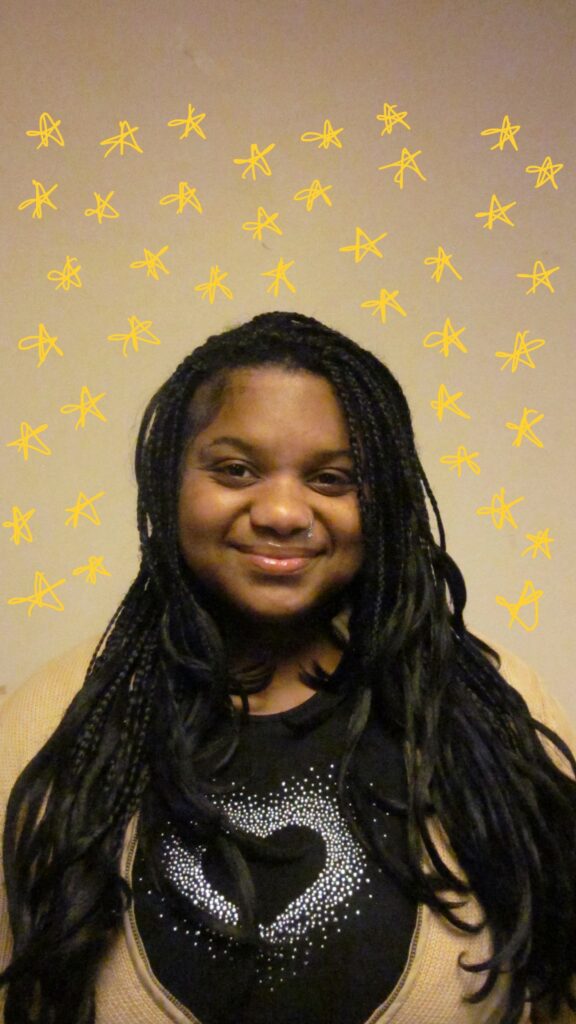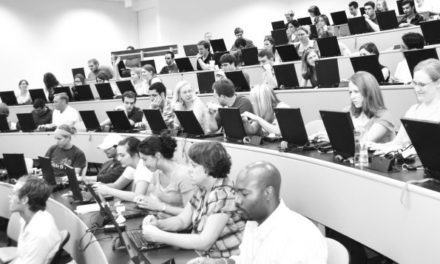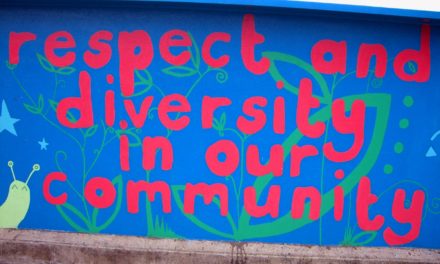
Courtesy of Opinion Staff/Headshot of Contributing Writer Aja Moore
As a Black American girl born to young parents who grew up in one of Philadelphia’s most impoverished neighborhoods, “be safe” is a phrase people like me say a lot. Unlike most of the empty assertions in the American lexicon, “be safe” means something so much more. It is not only a common farewell to strangers and a near-mandatory farewell to loved ones — it is a bastion of marginalized individuals’ way of life. These two words encapsulate the incessant and contagious fear and apprehension harbored by those deemed America’s second-class citizens.
The sentiment behind these two words has influenced much of my life. For a long time, because I knew I was one of the least likely demographics to succeed, I was afraid to try anything. People like me were meant to be confined by what society expects of us, and that isn’t much at all. I figured that if I tried to divert from the status quo, I would be met with the painful reminder that I need to “be safe” no matter what.
This was a reality so etched into my world that, despite excelling in school my entire life, I was not encouraged to go to college because that is just not something people like me do. But that all changed once I took a shot in the dark and ended up getting a full ride to Emory University through QuestBridge. In the blink of an eye, I went from just another girl from the slums of Philadelphia to a student at a world-class institution. Upon my arrival, I was not most surprised by the Maison Goyard bags that dotted my walks to Goodrich C. White Hall or by the heavy workload — I was most surprised by my peers’ collective willingness to be seen.
It seemed like my peers were so comfortable taking up space and people’s time. They went to office hours just to chat with professors and practically demanded to get coffee with professionals with jam-packed schedules. I just did not understand. I have always believed that I should not take up too much space. But seeing how successful my peers were by doing the complete opposite made me question why I still felt the need to “be safe.” After all, when I first arrived at Emory, I tried to mock the Kardashian-esque vocal fry of many Emory girls. I tried to dress as conservatively as possible. I tried to “be safe,” but it was not getting me anywhere.
I remember confiding in one of my professors about feeling embarrassed to ask for people’s time and attention. She reminded me that places like Emory weren’t built for people like me and that many of my peers were expected to go to elite colleges and succeed in them before they were even born. I learned to tell myself that they were just socialized in a way that encouraged them to feel entitled to all the opportunities life has to offer.
I felt that I should take up as little space as possible because I thought that I did not deserve the same opportunities. As a first-generation, low-income college student who is also a Black American woman, every time I spoke with my inner-city twang, I sounded the alarm that I did not belong. But I had to consider whether or not that was necessarily a bad thing.
On one hand, the first-generation Emory experience is horribly isolating. In my first semester, I did not know that fall break existed, let alone that everyone goes home for it. Once I found out, it was far too late to buy a $250 plane ticket home, so I ended up staying here, in my room, alone.
On the other hand, this experience has been uniquely illuminating. Being surrounded by people who come from different walks of life has changed me for the better. I’ve become more understanding and compassionate. I have met the bridesmaids for my wedding and the aunties for my future kids. Despite this, I can’t help but feel guilty for being the one who made it out.
Coming to Emory has allowed me to see the detrimental psychosocial effects “be safe” has had on me and my community. This view of the world captures the marginalized in a social paralysis that takes a tap on the shoulder from someone farther up on the social totem pole to undo.
In light of this realization, I decided I had no other choice than to be myself. My existence in this space is a radical act of redemption for those who won’t ever get that tap on the shoulder. As one of the lucky few, it is my duty to do my part in dismantling the sentiment behind “be safe” by continuing to take up meaningful space in places intentionally not designed for me.
I’ll leave off with this note: At institutions like Emory, Black first-generation, low-income students are the most vulnerable to falling through the cracks because we are taught to “be safe” all of our lives. So if you have a friend who fits these demographics and seems like they can just do it all, I implore you to check in on them from time to time because the weight of believing in yourself against all odds is a heavy one.
Aja Moore (26C) is from Philadelphia.




